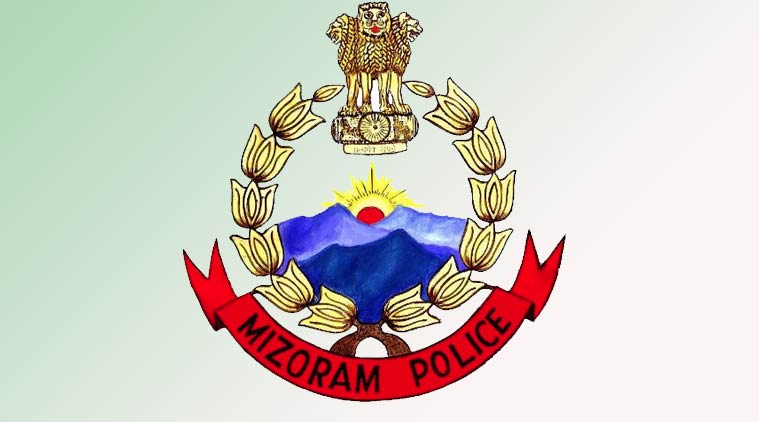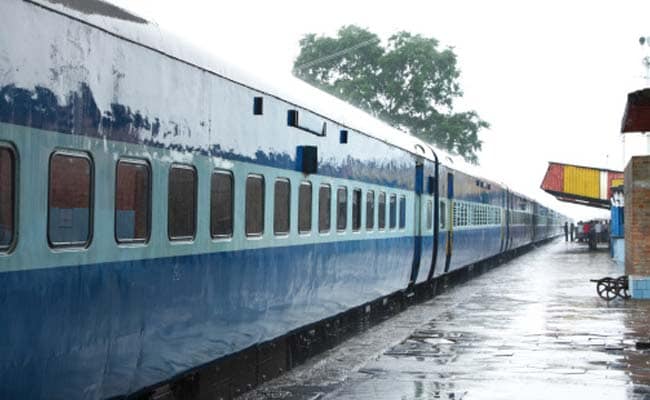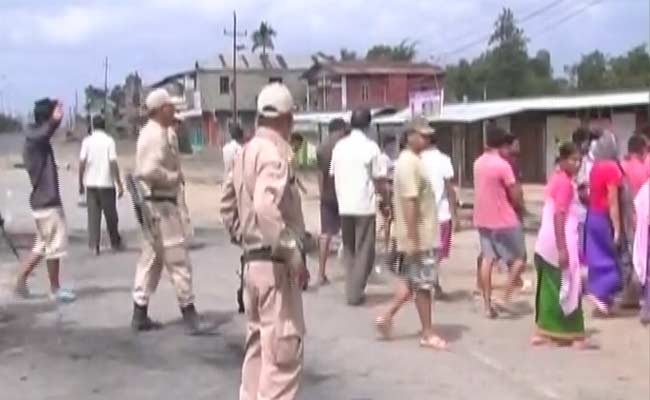HPCD resumes extortion operations after rejected talk offers, Mizoram DGP says police will bring militant group “to it’s knees”
The letter addressed to the PWD SDO at Ratu has demanded a donation of Rs 1 lakh.

Mizoram DGP Dharmendra Kumar said at a meeting of SPs and battalion commandants in Aizawl on Friday that the state police will continue to pressure the militant group until they are “on their knees”. Within a month after the Mizoram government rejected it’s offers for conditional tripartite talks, the Manipur-based Hmar People’s Convention Democratic (HPCD) has apparently resumed underground operations by sending letters demanding donations to four village heads and a PWD official in northern Mizoram, top sources in the state police have said.
The letters signed by “L Hmar, Commander” and addressed to the Village Council Presidents (VCPs) of New Vervek, Damdiai, Ratu and Lungsum and the state PWD’s Sub-Divisional Officer at Ratu were dated July 17 but were received by the addressees on July 21.
The letter addressed to the PWD SDO at Ratu has demanded a donation of Rs 1 lakh, sources said, while the demand letters addressed to the VCPs asked them to collect 5% of funds meant for all job-card holders in their respective jurisdictions and hand it over to the group or its representatives at Sihpuikawn, near Tipaimukh in neighboring Manipur.
Mizoram is separated from Manipur by the Tuivai and Tuiruang (Barak)
rivers, and Sihpuikawn lies east of the point where these two converge.
One of the recipients has told police a middle-aged woman in a vehicle delivered the letters on behalf of the militant group, which was responsible for the March 28 ambush on a convoy of three MLAs that killed three policemen and injured six others, including two civilians.
Meanwhile, Mizoram DGP Dharmendra Kumar said at a meeting of SPs and battalion commandants in Aizawl on Friday that the state police will continue to pressure the militant group until they are “on their knees”.
Saying the group’s latest move suggests they have “again become a little active”, DGP Kumar said, “I hope it is not because we have lessened our pressure. We cannot let it go at this stage.”
The Mizoram Police had retaliated against the HPCD by mounting a covert operation and shooting to death “Sergeant” H C Malsawmkima alias Danny, a 31-year-old man suspected to have led the lethal ambush along with the group’s “Western Commander” L Biaka, in early May at a village on the Manipur-side of the Barak river’s bank.
Malsawmkima was a constable with the state police’s armed wing before he fled from the camp at Sakawrdai last year with two guns and joined the militant group.
“Our teams have been so effective that the underground is now running around trying to seek talks again. They are scared of us, they are scared of the Mizoram Police, it was only because of our response that they have come to this kind of a situation. It is only because we have arrested their top leaders and managed to keep them behind bars,” the DGP said.
had on April 16, less than three weeks after the ambush, arrested the HPCD’s “Army Chief” Lalropuia Famhoite and “Finance Secretary” Norbar Sanate from near Silchar town in south Assam. They are currently in judicial custody and Famhoite currently faces dozens of criminal charges in two districts, Aizawl and Kolasib.
The HPCD had last month approached the state government with offers for conditional tripartite talks involving itself, the state government and the Centre, with even it’s chairman Zosangbera making telephone calls to police investigators to help facilitate the talks.
The state government has however rejected the offers saying they must be unconditional and only between the state and the HPCD.
Meanwhile, the HPCD’s long-standing interlocutor Lalmuanpuia Punte, currently chief of the Zoram Nationalist Party’s youth wing, met Union MoS for Home Kiren Rijiju on July 21 to talk about the Hmar “political issue” (the militant group claims to be fighting for an Autonomous District Council for the Hmar tribe) according to a post on Virthli.in, a web portal that largely publishes posts about the Hmar community.

Mizoram DGP Dharmendra Kumar said at a meeting of SPs and battalion commandants in Aizawl on Friday that the state police will continue to pressure the militant group until they are “on their knees”. Within a month after the Mizoram government rejected it’s offers for conditional tripartite talks, the Manipur-based Hmar People’s Convention Democratic (HPCD) has apparently resumed underground operations by sending letters demanding donations to four village heads and a PWD official in northern Mizoram, top sources in the state police have said.
The letters signed by “L Hmar, Commander” and addressed to the Village Council Presidents (VCPs) of New Vervek, Damdiai, Ratu and Lungsum and the state PWD’s Sub-Divisional Officer at Ratu were dated July 17 but were received by the addressees on July 21.
The letter addressed to the PWD SDO at Ratu has demanded a donation of Rs 1 lakh, sources said, while the demand letters addressed to the VCPs asked them to collect 5% of funds meant for all job-card holders in their respective jurisdictions and hand it over to the group or its representatives at Sihpuikawn, near Tipaimukh in neighboring Manipur.
One of the recipients has told police a middle-aged woman in a vehicle delivered the letters on behalf of the militant group, which was responsible for the March 28 ambush on a convoy of three MLAs that killed three policemen and injured six others, including two civilians.
Meanwhile, Mizoram DGP Dharmendra Kumar said at a meeting of SPs and battalion commandants in Aizawl on Friday that the state police will continue to pressure the militant group until they are “on their knees”.
Saying the group’s latest move suggests they have “again become a little active”, DGP Kumar said, “I hope it is not because we have lessened our pressure. We cannot let it go at this stage.”
The Mizoram Police had retaliated against the HPCD by mounting a covert operation and shooting to death “Sergeant” H C Malsawmkima alias Danny, a 31-year-old man suspected to have led the lethal ambush along with the group’s “Western Commander” L Biaka, in early May at a village on the Manipur-side of the Barak river’s bank.
Malsawmkima was a constable with the state police’s armed wing before he fled from the camp at Sakawrdai last year with two guns and joined the militant group.
“Our teams have been so effective that the underground is now running around trying to seek talks again. They are scared of us, they are scared of the Mizoram Police, it was only because of our response that they have come to this kind of a situation. It is only because we have arrested their top leaders and managed to keep them behind bars,” the DGP said.
had on April 16, less than three weeks after the ambush, arrested the HPCD’s “Army Chief” Lalropuia Famhoite and “Finance Secretary” Norbar Sanate from near Silchar town in south Assam. They are currently in judicial custody and Famhoite currently faces dozens of criminal charges in two districts, Aizawl and Kolasib.
The HPCD had last month approached the state government with offers for conditional tripartite talks involving itself, the state government and the Centre, with even it’s chairman Zosangbera making telephone calls to police investigators to help facilitate the talks.
The state government has however rejected the offers saying they must be unconditional and only between the state and the HPCD.
Meanwhile, the HPCD’s long-standing interlocutor Lalmuanpuia Punte, currently chief of the Zoram Nationalist Party’s youth wing, met Union MoS for Home Kiren Rijiju on July 21 to talk about the Hmar “political issue” (the militant group claims to be fighting for an Autonomous District Council for the Hmar tribe) according to a post on Virthli.in, a web portal that largely publishes posts about the Hmar community.














